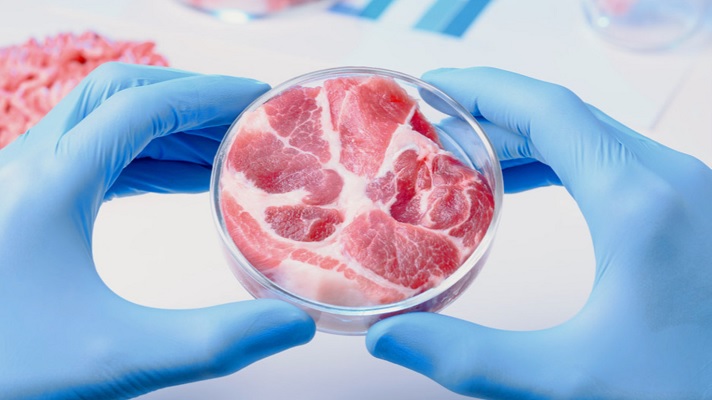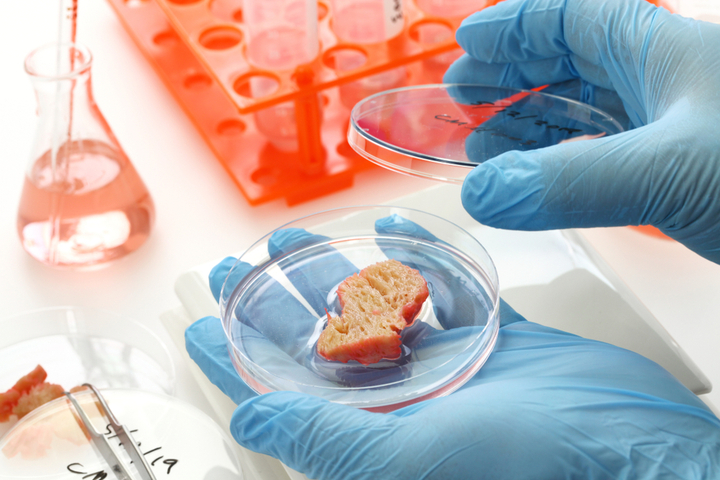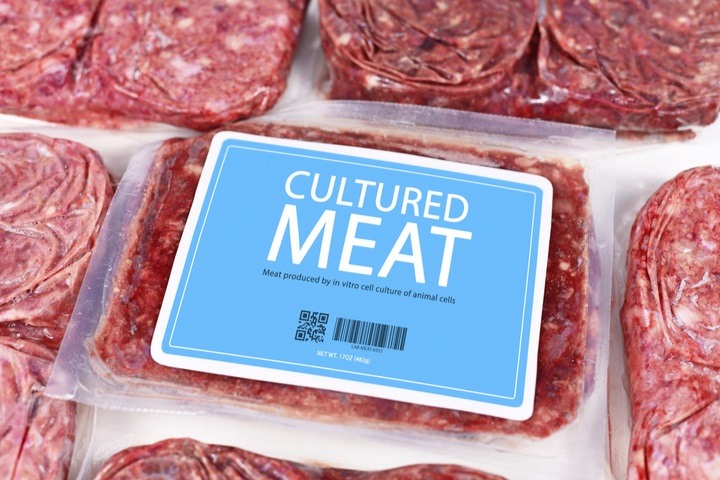The world is initiating change in many ways. The evolution of lab-grown meat or cultured food is one such way. This idea is expected to create a more eco-friendly and humane meat industry.
The reason why cultured meat is growingly becoming popular is that it does not support animal slaughtering. It gets produced from a few animal stem cells. These cells are bathed in a liquid containing nutrients which help them for duplication. It is further put into a bioreactor that helps growing organisms and to create unstructured meat. Afterward, it is transformed into a realistic meat product.

Since cultured meat is still in its infancy, researches and development processes to understand its benefits are still getting continued. But at the same time, the companies are trying ways to manufacture cultured meat-based nuggets, burgers, and other food items. Moreover, cultured meat holds a great potential with numerous benefits, and is expected to hit the shelves in supermarkets and restaurant tables really soon. This article, therefore, aims to provide some of its potential benefits.
- It Minimizes Environmental Impact:
This is one of the major benefits of lab-grown meat. The rising demand for meat, owing to growth in population is leading to a surge in the requirement for more forested land. Cultured meat, on the other hand, does not require much land. In addition to this, it also uses less water and contributes to minimizing pollution.
Another eco-supporting fact is that the traditional way of beef production requires a lot of methane, carbon dioxide, and nitrous oxide. These greenhouse gases contribute to global warming. However, cultured meat considerably reduces these emissions.
2. It is Thoughtful to Animals:
Issues with animal welfare are common. Animal farms, especially factory farms for meat businesses are the basic process that leads to nothing but cruelty towards animals. They are more treated like components rather than living beings. Either enduring a short, miserable life or getting suffocated in the cages or crates, unable to have natural behavior. Cultured meat, whereas, requires a small sample of tissues rather than killing an animal. The cells can also be taken from living animals.
3. It Decreases Contamination:
Processed meat, undeniably has contaminants that lead to infection. For instance, foodborne including salmonella and E. coli present in animals’ intestines can lead to severe stomach cramps, vomiting, and diarrhea. However, this won’t affect when it is about lab-grown meat. Most importantly, people can enjoy their chicken burgers without any after-effects or bacterial infections.
4. It Offers a Healthier Option with Less Saturated Fat:
Slaughtered meat has high saturated fats which lead to numerous health problems. Clean meat, on contrary, can be healthier as the number of fats can be altered by the producers. In addition, lab-grown meat producers can even replace saturated fatty acids with other healthier substitutes including omega-3 fatty acids. Imagine having a variety of meat products with the same meat taste and less or no cholesterol as well as saturated fats.
5. It has Fewer Antibiotics that Save People’s Lives:
Farmed animals are often given antibiotics that help to keep them healthy. This, however, leads to antibiotic resistance, a situation where antibiotics drugs stop working effectively on infections. This can take enormously terrifying turns leading to affect the health of millions of people.

For a fact, overusing antibiotics in farming has been emphasized as one of the largest evolving extortions to human health. This can be dangerous as many common infections will no longer have treatment. Nevertheless, cultured meat does not at all require antibiotics.
6. It does not Need Growth Hormones:
It is been known for years that animals are given hormones to make them grow larger. Cows are one of the basic examples of this procedure, which is followed to increase milk generation. These hormones, however, are banned in various regions, due to the fact that they can increase health risks. Conversely, cultured meat requires no growth hormones. This not only minimizes the health risks for humans but also saves the animal from hormonal effects.
7. It Can be Inexpensive than Conventional Meat:
Presently, cultured meat is incredibly expensive. However, this is a trend followed by almost all the prototypes regardless of their field. Precisely, prototypes are always the most expensive before becoming affordable. Compared to the cost of the first cultured meat-based burger, there’s already been an enormous cost reduction. And as the companies would scale up the production, the prices should ultimately be decreased and become affordable over conventional meat.
What does the Future Hold?
With the growing population, the concerns of growing food requirements have also become an issue. This has augmented the requirement of food manufacturing to not just meet the demand presently, but also to be prepared for future outcomes. Cultured meat, moreover, can be foreseen as one such method that can come out to be beneficial to accomplish the demand. Though it is not yet available to consumers, various researchers predict that it would be available soon in the future. Understanding the way cultured meat is developed and that it could match the nutrients of traditional meat could help in boosting its acceptability. Eventually, it still depends upon the consumers to decide if they support this future food trend. But at the same time, its numerous benefits are expected to expand the trend. According to a report published by Allied Market Research, the global cultured meat market is expected to hit $2788.1 million by 2030.
The demand for alternative protein products is increasing along with the concerns regarding animal welfare. Also, the awareness regarding environmental awareness is leading people to adopt eco-friendly habits. At the same time, the demand for allergen-free foods is rising. All these factors are supporting the growth of cultured meat. Furthermore, the gap between supply-demand of conventional meat is rising thereby creating opportunities for the cultured meat industry. Nevertheless, the growth of purchasing power and increasing lifestyle changes, and adoption of new food habits are the aspects that are anticipated to boost the prospects for the industry players, and the cultured meat market is therefore expected to grow exponentially.




